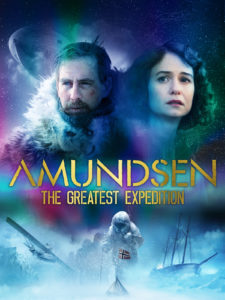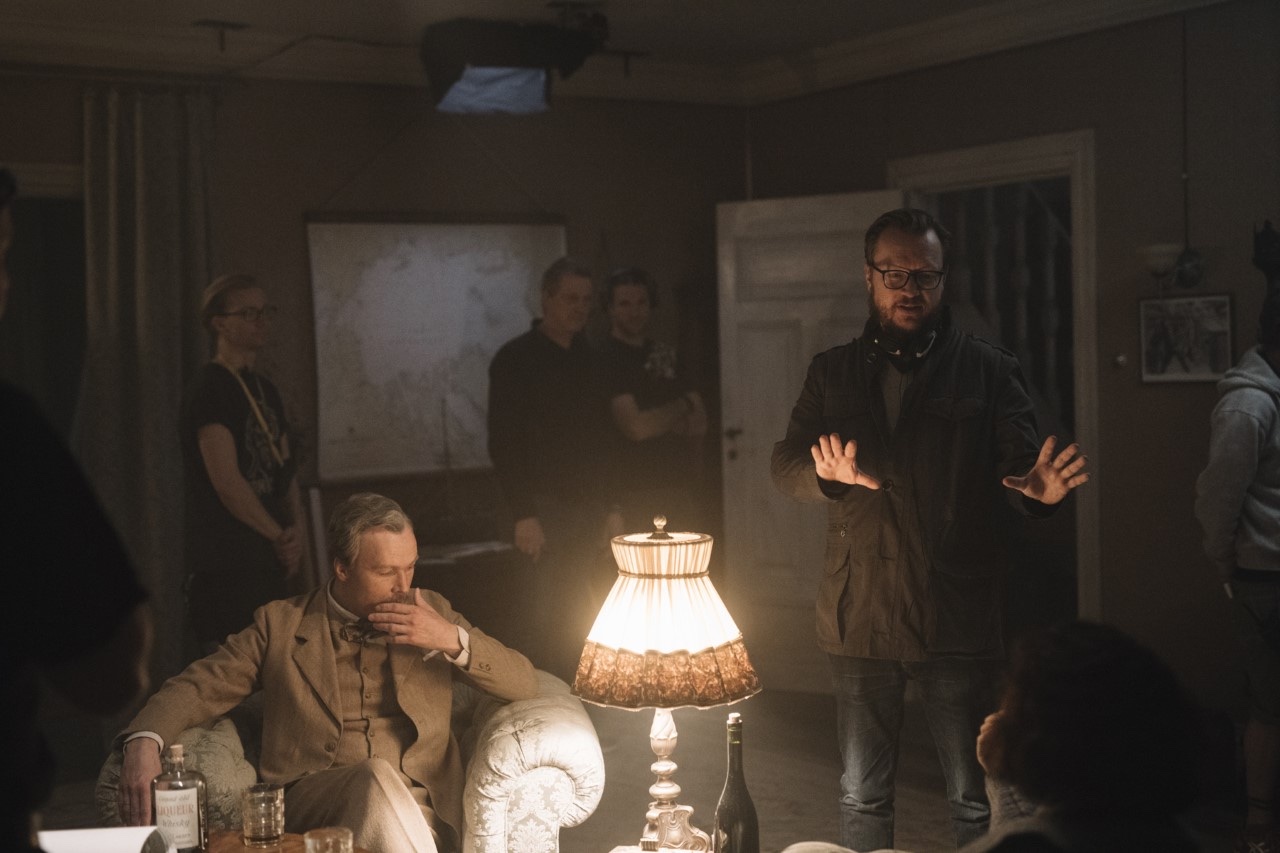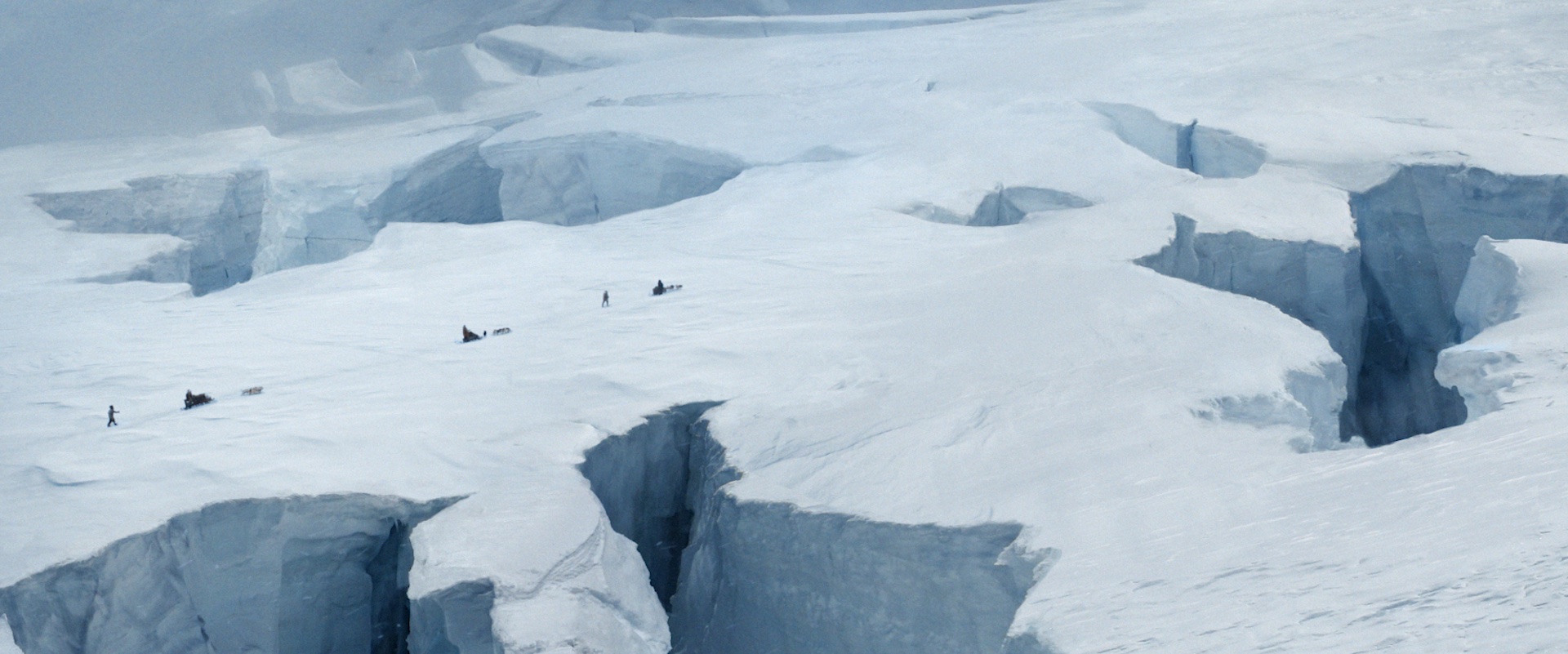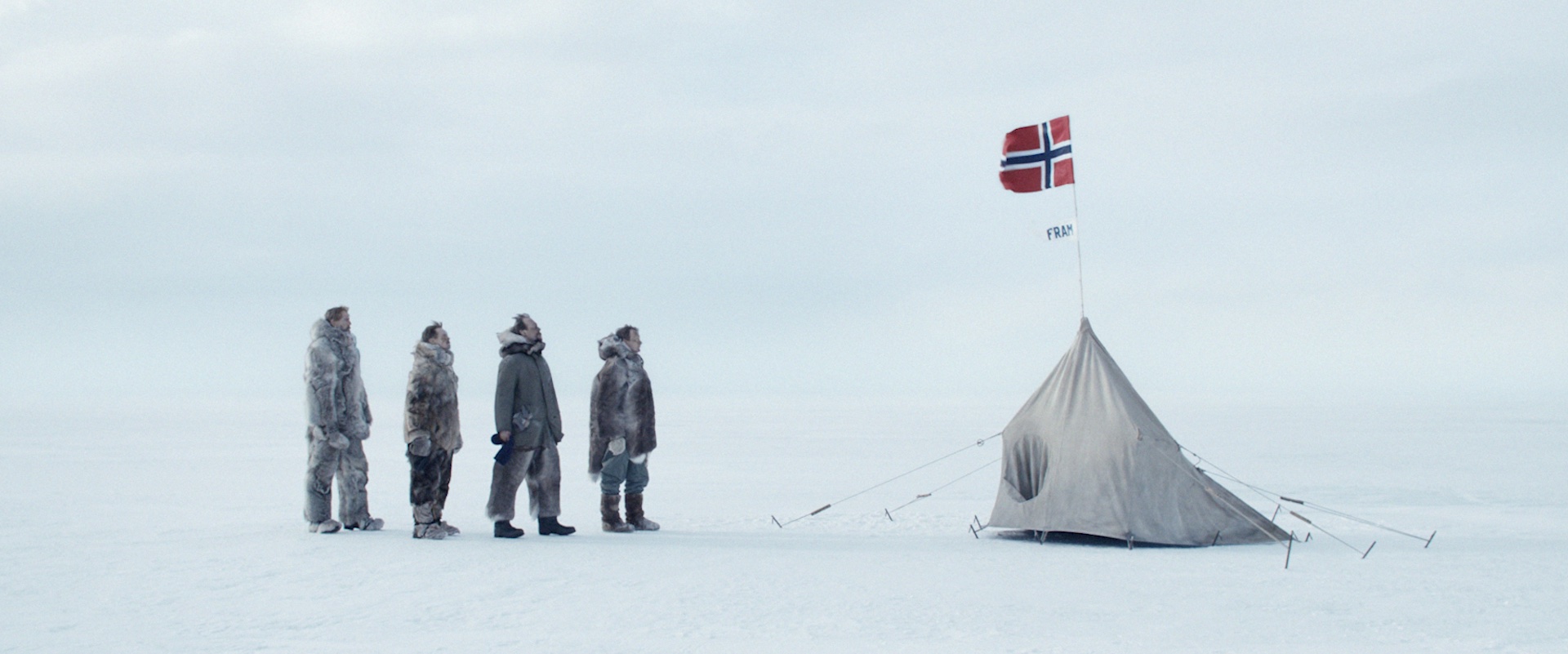The race to the South Pole between Amundsen and Captain Robert Scott is fairly well-known. Can you talk about your decision to focus not only on his expeditions, but on Amundsen as a human being?
That’s exactly why I wanted to do it, as I felt like we’d seen the race before. I went to the museum in Oslo where they have a model of the Zeppelin, airplanes, and everything else about the expeditions. I was so taken by it. I then read Amundsen’s book, which was very strange. He was kind of angry and bitter, so I became very interested in his whole life. That’s what I wanted to explore more.
 On March 29, 1912, Amundsen’s rival Captain Robert Scott makes his final entry in his diary, ending with, “I do not think we can hope for any better things now. We shall stick it out to the end, but we are getting weaker, of course, and the end cannot be far. It seems a pity, but I do not think I can write more.” Despite the clear and inherent danger to these expeditions we see this intense desire to be first. How much did ego play a factor in these explorations?
On March 29, 1912, Amundsen’s rival Captain Robert Scott makes his final entry in his diary, ending with, “I do not think we can hope for any better things now. We shall stick it out to the end, but we are getting weaker, of course, and the end cannot be far. It seems a pity, but I do not think I can write more.” Despite the clear and inherent danger to these expeditions we see this intense desire to be first. How much did ego play a factor in these explorations?
In Roald Amundsen case I think it played a huge factor. He definitely wanted to be first, especially to the South Pole. He had planned to go to the North Pole, but when claims came out that other men (Robert Peary) had already been there, he immediately looked to the South Pole.
He didn’t really tell anyone that he was on his way south until he was all the way down by Australia, actually. Amundsen didn’t care about the science aspect of it, he just definitely wanted to be the first one there. For something like this I think you need an extreme drive, but I think that drive is often fueled by ego. The need to make your mark. Put your name on the map so to speak.
Speaking of ego, Amundsen is often described as being arrogant and cold, even towards the people — namely his brother, Leon Amundsen — who helped make his expeditions a success. When he disappeared in 1928 the brothers were not on speaking terms. How important was it for you to give a voice to Leon in the film?
It was very important for me because I wanted to explore Amundsen as a human being. I wanted to be fair to the man. I wanted to have people that both loved him like his finacée Bess Magid, and people that loved him but had problems with him like his brother, Leon. I wanted them to have very different opinions and I wanted them all to be right.
If someone asked my brother, my colleagues, my parents, my ex-wife, my wife who I was, they would get very different answers, so I wanted to do that.
To go back a little bit to what we talked about earlier, the price of success is often paid by others and especially by the ones closest to you. When you have a huge drive there’s also a shadow side to that. You don’t very often see it, but I think it’s interesting to have a look at that too.

What was your research process like?
There’s actually quite a lot of film so I could actually see the man, which was wonderful. The way he would move, the way the world was then, the way they dressed. On top of that there’s a lot of books written about him. The new thing for us — and we’ve got this through the museums in Norway — was that they recently translated all the intricate handwriting on all of his cruise diaries. We suddenly had that material to draw from, and also personal letters from the family began to surface. We saw that there was another story that needed to be told.
Did anything surprise you during your research process?
What surprised me most was how much they traveled back then — how extremely active they were. Roald Amundsen at some point got cancer and he traveled to Los Angeles. They were real globetrotters, whereas I thought that everything moved so slowly back then. So that was one of the things that I was really surprised by, that they lived very international lives.
You’ve previously mentioned that you attempted to capture nature at its best, as they did in the movie “The Revenant”. In the film, you cut between glitzy galas and desolate landscapes. Did you find that for a seemingly restless spirit like Amundsen he felt more at home in the wild polar regions?
I know for a fact that he didn’t really enjoy being in cities. He found that it was hard for him to read all the cultural nuances in the different places he visited. He preferred being in smaller groups of people, especially when he could control that group. So, for him to be on a boat in the ice for years… it sort of suited him personality-wise. It was something that he could understand.
He also loved nature. He found it healing and beautiful. He once wrote in his diary that he wished people could see the beauty of these desolate places. He was completely taken by it and longed for it when he wasn’t there.

How do you hope to shape the historical narrative surrounding Amundsen?
I hope that it will paint a richer picture of who he was as a human being. I think, like we talked earlier, there are some wonderful traits of his personality that made him capable of doing these things, but there were other sides of his personality that were tough on other people. But I think that’s important to know and important to see. I hoped to have created a richer portrait of the man.
AMUNDSEN: THE GREATEST EXPEDITION from Samuel Goldwyn, will be released in Virtual Cinemas and VOD on April 2nd. See the trailer below:





